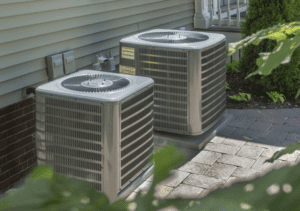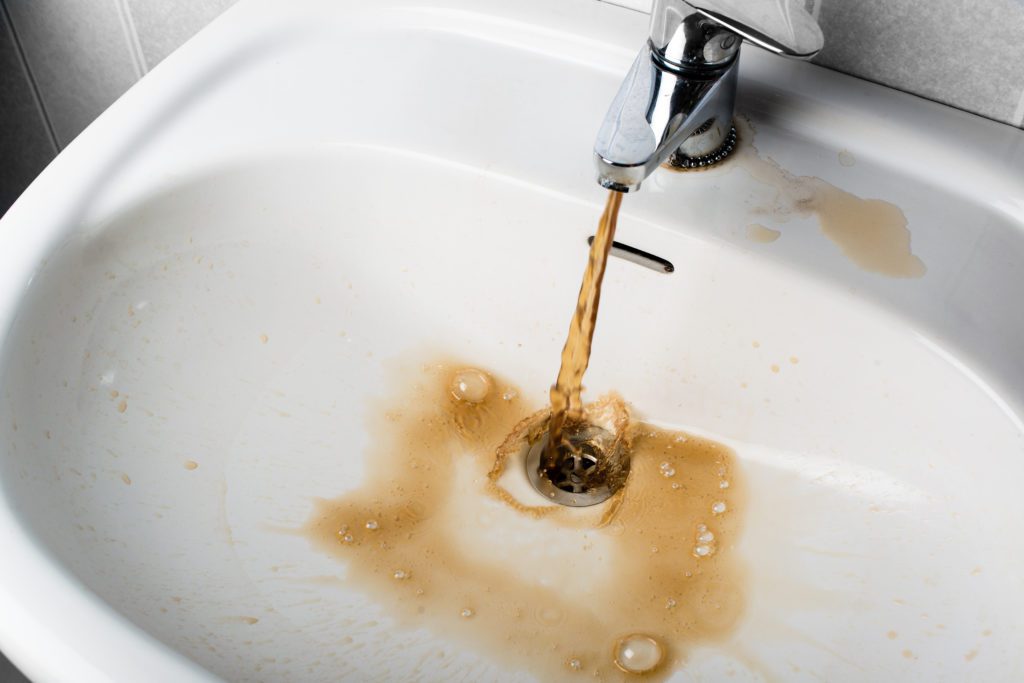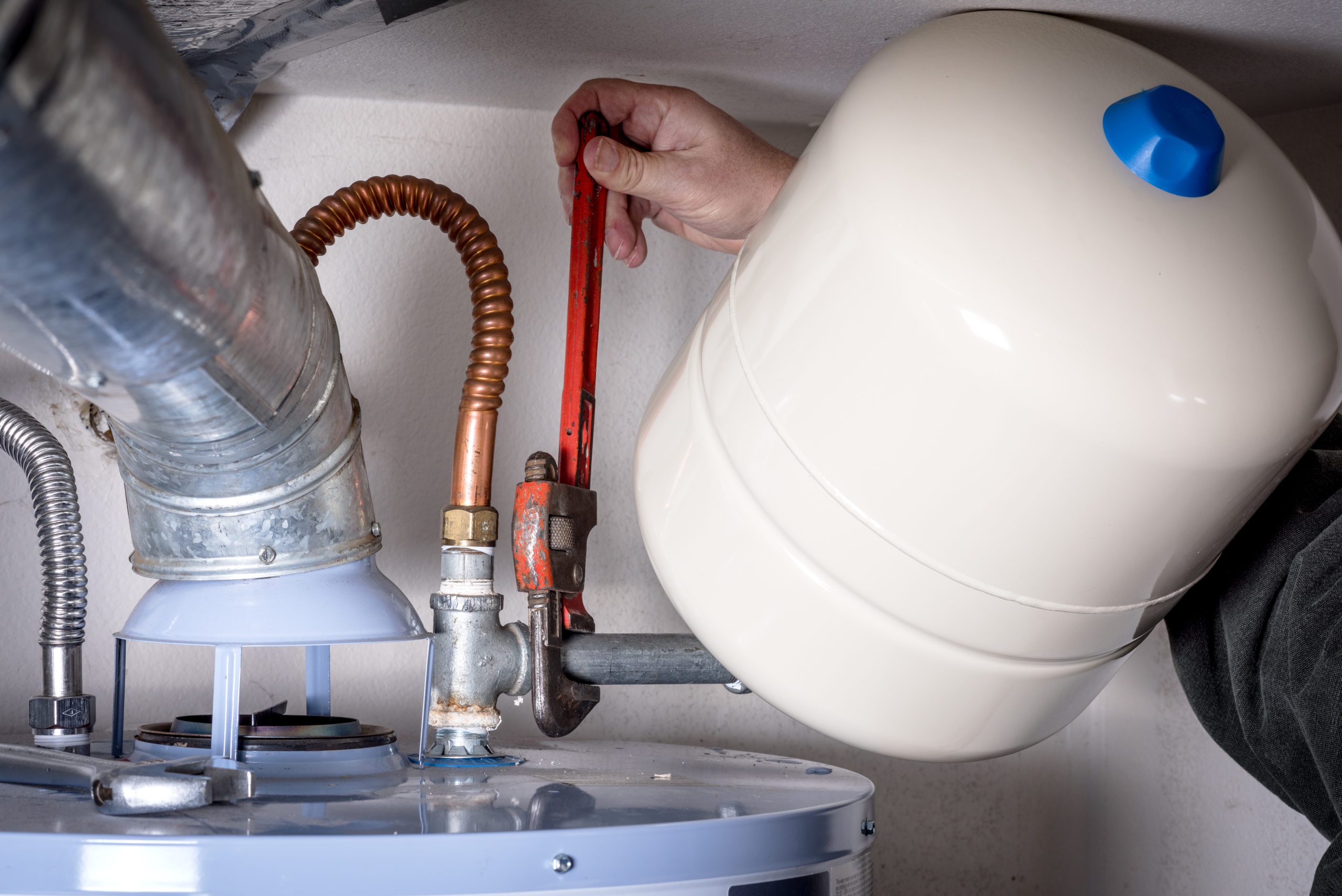The last thing you want to see when you’re washing your hands or brushing your teeth is brown water coming out of your faucet. While rusty water isn’t usually harmful, it can be gross to look at or use. Rusty water can occur for various reasons, but whatever the cause, it can be a huge annoyance for you and your family.
The next time you see brown or red colors streaming from your sink, don’t fret; in some cases, there are solutions for eliminating rust from your home’s water line. Our plumbing experts at Cates Heating and Cooling are here to help you understand why you may have rusty water and what you can do about it.
5 Reasons Water Can Be Rusty
If your home has rusty water from faucets, the water heater, or even rusty water in toilets, there could be many factors causing that weird reddish-brown color. Depending on the cause of rusty water, the solution can vary.
No matter the cause of rusty water, it’s important to get it fixed as soon as possible. Most of the time, rusty water is more of an inconvenience—it can stain your clothes while they’re in the wash or your dishes while they’re being rinsed in the sink—than a hazard.
If your rusty water is the result of a more serious problem, such as rusty pipes or a corroded water heater, you’ll want to get it fixed as soon as possible before it turns into a larger issue. In the meantime, avoid washing delicate items of clothing, brushing your teeth, or taking a bath.
1. Minerals in Water
Most of the time, your water may look red, yellow, or brown from the presence of mineral sediments such as iron or manganese. Fortunately, both of these minerals are harmless, so you can still technically use the water without worrying about any health risks.
Tiny, metallic mineral deposits can enter your water from various sources. Typically, minerals are deposited into the water stream naturally or from a manmade source such as maintenance or construction.
If your water tastes funny or has a weird smell, it’s most likely due to an excess amount of minerals in your water lines.
2. Water Source
Extenuating circumstances can cause your home’s water source to become rusty. If you notice that both your hot and cold water are suddenly turning brown, this could be because of a city-operated water main break or fire hydrant activation. Both situations can result in a water pressure shift, allowing sediments to enter the water or rust to dislodge from your pipes.
Nearby construction can cause minerals or sediments to make their way into water piping. If your home has its own well system, finding a higher iron content in your water is normal. This is because minerals such as iron can seep into the groundwater and not be fully filtered out before entering your home.
Iron levels in your well can also fluctuate and change seasonally, so you may notice a rusty hew in your water at certain times of the year more than others.
3. Older Water Systems
Unfortunately, many areas in the United States have outdated water systems. Because of this, water breaks can happen quite often. When this occurs, sediment and rust particles sitting at the bottom of the water system’s pipes are released into the public supply.
Older water systems also use older piping materials, so there’s a higher chance of rust appearing in the water from corroding or rusting pipes.
4. Rusty Pipes
Over time, your water pipes can rust from oxygen, iron, and water combining on their surface. The pipes’ interior rust will then dislodge and mix with the water streaming into your home.
Pipe repair and replacement can also cause rust to dislodge from pipes. When your water supply is turned off and on, the pressure can make your water suddenly appear rusty.
5. Corroded Water Heater
If you notice that only the hot water in your home appears rusty, this could be a sign that something is wrong with your water heater. A corroded water heater is a less common reason for rusty water, but it is possible and should be considered.
Rusty water from the water heater can occur if sediment has built up at the bottom of its tank. Like piping, your water heater can also corrode over time, allowing rust to leak into your water. If your water heater is corroded, sediment build-up will only get worse.
A plumbing professional can determine whether your water heater is rusted beyond repair and needs to be replaced.
What To Do If You Have Rusty Water
Seeing rusty water in your home can be alarming, especially if you’ve never experienced it before. The U.S. Environmental Protection Agency (EPA) regulates drinking water by treating any contaminants that are present. Primary regulations ensure that dangerous contaminants, such as arsenic or lead, are eliminated from the water system completely.
Secondary contaminants include iron and manganese. Because these minerals aren’t technically dangerous for your health, testing for them is voluntary. This is why minerals can leak into your home’s water from time to time and cause the rusty color, taste, and smell.
First of all, don’t panic; most of the time, rusty water is harmless since iron is naturally found in many drinking water sources. However, when your water has become extremely discolored, we don’t recommend cooking with it, drinking it, or bathing in it.
Depending on the source of the rusty water, there are some treatment options to consider. These include:
- Installing a Water Filter or Softener: These can be installed in your home to help eliminate some mineral build-up, especially if you have your own well system.
- Draining Your Water Heater: We recommend flushing out your water heater tank at least twice a year to prevent excess sediment from building up at the bottom.
- Talking to Local Officials: With older water systems, there may not be much you can do to prevent rusty water from entering your home now and then. You can try reaching out to local authorities or your water company to see if there’s been an event in your area, such as maintenance or construction, that could’ve caused the discolored water.
Preventing Rusty Water in the Future
As we already stated, some rusty water is inevitable. However, if rust continues to build up in your water lines, it can lead to high levels of corrosion that cause cracking in your pipes. This can result in massive water leaks and water damage in your home.
You should have your plumbing system checked regularly by a professional plumber to avoid any plumbing mishaps, bursting pipes, or cracking in water lines. If left untreated, these hazards only turn into expensive repairs.
Although eroded substances entering the water supply cause the reddish-brown tint rusty water is known for, they typically don’t pose a large health risk. If you are concerned with how your water tastes, looks, smells, or the effects of rusty water on your skin, it’s best to call a plumbing professional to determine what is truly causing rusty water in your home.
Give us a call today at Cates Heating and Cooling. Our professional technicians can help diagnose any problems associated with rusty water and offer advice on fixing the problem. Contact us at 913-888-4470 for Kansas residents and 816-944-1844 for Missouri residents.




















